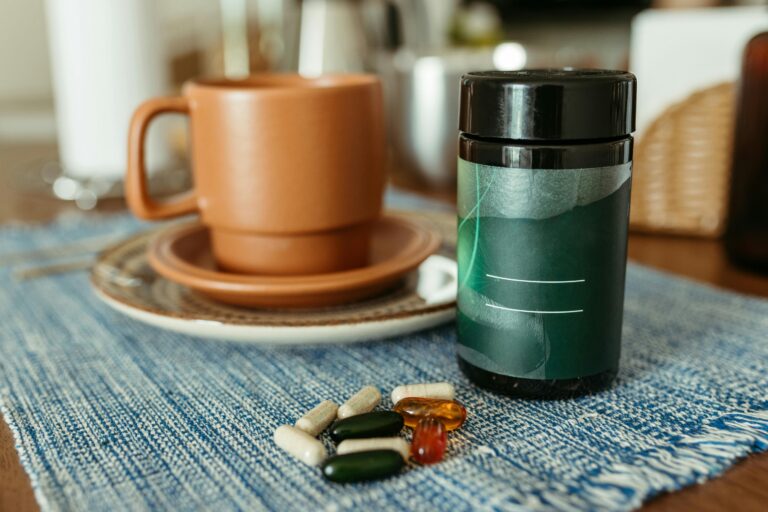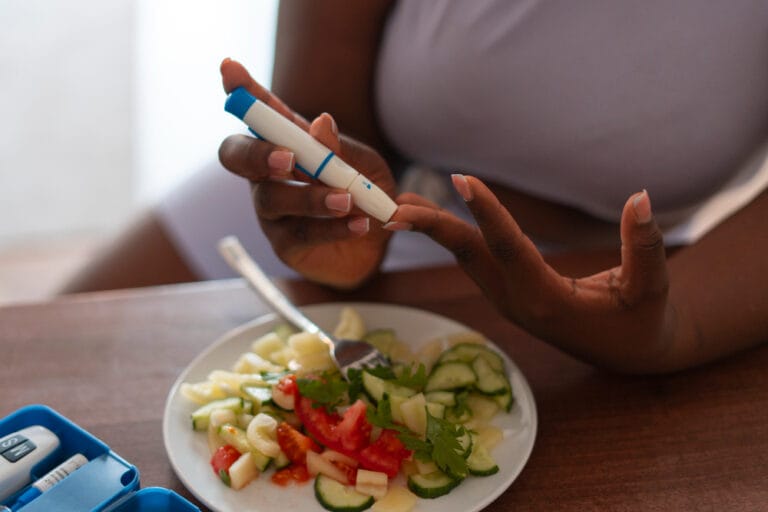FREE SHIPPING OVER $50
Your Daily Magnesium: Could It Slash Your Colon Cancer Risk? Doctors Weigh In!
You probably already know magnesium as that amazing mineral vital for strong bones, healthy muscles, and even a good night’s sleep. It’s often praised in the vitamins and supplements world for its calming effects and crucial role in hundreds of bodily functions. Many of us are already taking a magnesium supplement daily or making sure our diet is rich in magnesium-rich foods.
But what if this humble mineral held an even more profound, unexpected effect on your long-term health? What if your daily magnesium intake could play a significant role in slashing your colon cancer risk? It’s a question that has doctors and researchers increasingly intrigued, as new studies shed light on a surprising connection between this essential nutrient and one of the most common cancers.
The Unsung Hero: Magnesium’s Core Role in Your Body
Before we unravel its potential role in colon cancer prevention, let’s quickly recap why magnesium is such a big deal. This mighty mineral is involved in over 300 enzymatic reactions in your body! It’s like the quiet conductor of an orchestra, ensuring everything runs smoothly.
From maintaining proper nerve and muscle function to regulating blood sugar levels and blood pressure, magnesium is constantly at work. It helps build protein, bone, and DNA. It’s crucial for energy production, too. Given all it does, it’s perhaps not so surprising that a consistent supply of this mineral could have wide-ranging impacts on our health. However, many people simply don’t get enough magnesium from their diet, making magnesium supplements a common choice.
The Surprising Link: Magnesium and Colon Health

The idea that something as simple as magnesium intake could influence something as complex as colon cancer risk might seem far-fetched. Yet, over the past few decades, a growing body of scientific research has consistently pointed towards an inverse relationship: people with higher magnesium intake tend to have a lower risk of developing colon cancer.
So, how exactly might magnesium slash your colon cancer risk? Scientists propose several fascinating mechanisms:
- Inflammation Fighter: Chronic inflammation is a known driver of cancer development, including in the colon. Magnesium possesses significant anti-inflammatory properties. By helping to reduce systemic inflammation, it might create a less hospitable environment for cancer cells to thrive.
- Insulin Sensitivity Booster: Magnesium plays a critical role in glucose metabolism and insulin sensitivity. Higher levels of insulin or insulin resistance are linked to an increased risk of colon cancer. By improving insulin sensitivity, magnesium could indirectly reduce this risk.
- Antioxidant Power: While not a direct antioxidant itself, magnesium is involved in the function of important antioxidant enzymes in the body. These enzymes help neutralize harmful free radicals that can damage DNA and contribute to cancer formation.
- Cell Growth Regulator: Magnesium is involved in regulating cell signaling pathways. It may help ensure that cells grow, divide, and die off in a controlled manner, potentially preventing the uncontrolled cell proliferation characteristic of cancer.
- DNA Repair Mechanisms: This mineral is a cofactor for enzymes involved in DNA repair. Keeping our DNA intact and healthy is crucial for preventing mutations that can lead to cancer. By supporting these repair mechanisms, magnesium could offer a protective effect.
What the Doctors Weigh In On: Practical Advice
The stance of doctors can be summarized as one of cautious optimism, combined with practical advice:
- It’s Promising, But Not a Cure-All: Doctors are generally encouraged by the research, acknowledging the potential protective role of magnesium. However, they emphasize that magnesium is not a magic bullet or a standalone treatment for colon cancer. It’s one piece of a much larger puzzle in cancer prevention.
- Diet First, Always: Most doctors will stress that the best way to get your magnesium is through a balanced diet rich in whole foods. This approach provides not just magnesium, but a synergy of other beneficial nutrients, fiber, and antiboxidants that contribute to overall colon health and cancer prevention.
- Supplementation Considerations: If dietary intake isn’t sufficient, or if someone has a magnesium deficiency due to medical conditions or medications, magnesium supplements can be a valid option. However, doctors advise consulting with a healthcare provider before starting any new supplement regimen, especially for specific health concerns like cancer prevention. They can help determine the appropriate type (e.g., magnesium citrate, glycinate are well-absorbed, while magnesium oxide is less so and often used for constipation), dosage, and potential interactions.
- Focus on Proven Prevention Strategies: While magnesium’s role is exciting, doctors reiterate that individuals should not neglect established, proven colon cancer prevention methods. These include regular screenings (like colonoscopies), maintaining a healthy weight, exercising regularly, eating a high-fiber diet, limiting red and processed meats, and avoiding smoking and excessive alcohol. Magnesium should be seen as a complementary strategy, not a replacement.
In essence, doctors weigh in by saying: pay attention to your magnesium intake, ideally through food, but don’t stop following the comprehensive guidelines for colon cancer prevention.
Boosting Your Magnesium: Beyond the Pill
So, how can you ensure you’re getting enough magnesium to potentially slash your colon cancer risk and support overall health? Aim for the Recommended Dietary Allowance (RDA), which is around 400-420 mg per day for adult men and 310-320 mg per day for adult women, though individual needs can vary.
Here are some excellent magnesium-rich foods to incorporate into your daily diet:
- Dark Leafy Greens: Spinach, kale, Swiss chard are packed with magnesium.
- Nuts and Seeds: Almonds, cashews, pumpkin seeds, chia seeds, flaxseeds are fantastic sources.
- Legumes: Black beans, lentils, chickpeas are not only great for protein and fiber but also high in magnesium.
- Whole Grains: Brown rice, whole wheat bread, oats, and quinoa contribute significantly.
- Avocado: A delicious source of magnesium and healthy fats.
- Dark Chocolate: Yes, a little indulgence can be healthy! Opt for varieties with 70% cocoa or higher.
- Bananas: A convenient and tasty source.
Holistic Colon Health: More Than Just One Mineral
While the potential of magnesium to slash your colon cancer risk is certainly exciting, remember that colon health and cancer prevention are truly holistic endeavors. It’s never about a single nutrient or a magic bullet.
Think of it as building a strong fortress for your colon. Magnesium might be an important brick, but you need all the other essential components too:
- Regular Screenings: Colonoscopies and other screenings are critical for early detection and prevention.
- High-Fiber Diet: Fiber promotes healthy digestion, regularity, and removes waste efficiently, which is crucial for colon health.
- Limit Processed Foods & Red Meats: These are often linked to increased colon cancer risk.
- Maintain a Healthy Weight: Obesity is a known risk factor for many cancers, including colon cancer.
- Stay Active: Regular physical activity reduces inflammation and improves overall health.
- Avoid Smoking & Excessive Alcohol: These habits significantly increase cancer risk.
Conclusion
The research on magnesium and colon cancer risk is a powerful reminder of how intricate our bodies are and how seemingly small daily habits can have profound effects on our long-term health. While doctors continue to gather more definitive evidence, the existing findings offer compelling reasons to pay closer attention to your daily magnesium intake.
Whether you boost your magnesium through delicious, nutrient-rich foods or via a carefully chosen supplement, prioritize this essential mineral. It’s not just about bones and muscles anymore; it could be a vital part of your strategy to slash your colon cancer risk and live a healthier, longer life. Make sure you discuss any changes or concerns with your doctor, and continue to champion your health in every way possible!
Related Articles
- Urgent Liver Alert: This Common Supplement Is Secretly Damaging Your Liver (Doctors Reveal Why You MUST Stop!)
- Brain Fog Breakthrough: The Shocking B12 Deficiency Link Doctors Say Is Stealing Your Memory!
- Youth-Stealing Supplements: 3 You Must Avoid Because They Secretly Age Your Skin!
- Unlock Max Bone Strength: Scientists Pinpoint The Optimal Time to Take Your Calcium Supplement
- Unlock Your Inner Calm: The 5 “Hidden” Powers of Ashwagandha Elite Wellness Experts Swear By (Stress-Proof Your Life!)







